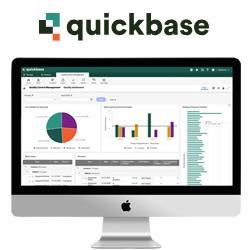Energy Partnerships Join Forces To Leverage Expertise
The Global Village Energy Partnership (GVEP) and the Renewable Energy and Energy Efficiency Partnership (REEEP) have signed a formal agreement to commit themselves to cooperating in order to promote clean energy systems, while leveraging each organisation's delivery infrastructure.
Brasilia, October 21, 2005
Working to accelerate the provision of energy services to those currently un-served or underserved, and the introduction of renewable energy and energy efficiency, particularly to the benefit of the rural poor, two global energy partnerships formed at the World Summit for Sustainable Development have signed a Memorandum of Understanding to work together in a number of areas.
The Global Village Energy Partnership (GVEP) and the Renewable Energy and Energy Efficiency Partnership (REEEP) have signed a formal agreement to commit themselves to cooperating in order to promote clean energy systems, while leveraging each organisation's delivery infrastructure. The result is that two WSSD Type 2 partnerships are now more formally engaged and they have identified synergies where the two programmes can leverage impact.
"We realized that there are a lot of synergies between our two partnerships. And with limited public funding for sustainable energy, it makes sense to work together to avoid duplication. REEEP looks forward to the technical in-country expertise that GVEP can provide to our projects", stated Marianne Osterkorn, International Director of the REEEP.
Speaking at the GVEP Biennial Partner Assembly in Brasilia, GVEP Manager Abeeku Brew-Hammond announced that the GVEP Technical Secretariat will work closely with REEEP Regional Secretariats in reaching out to GVEP Country Focal Points around the world. "Closer cooperation between GVEP and REEEP should make it possible for us to harness energy for poverty reduction at a much faster rate. By working with REEEP to increase access to renewable energy sources and increasing energy efficiency, we will increase the options available on the 'full menu' which GVEP uses."
GVEP works to facilitate access to energy to the rural and urban poor throughout the world via major investment projects and other activities including advocacy at global and national levels. For example Brazil's Programma Luz para Todos has been developed with GVEP participation to provide energy services to 12.5 million people by 2008. GVEP partners are also developing energy for poverty reduction programs in Senegal and Cameroon. In South East Asia strong links have been made with finance institutions. GVEP has 850 registered Partner organizations around the world and this number is growing steadily. GVEP brings together developing and industrialized country governments, public and private organisations, multilateral institutions, NGOs, civil society organizations, consumers, and others.
REEEP's work is focused on the development and support of legislative and regulatory frameworks that accelerate the marketplace for renewable energy and energy efficiency. REEEP is very active around the world with over 58 on-the-ground projects which are focused on either policy or financial models that can be replicated by governments and project developers worldwide. Currently more than 30 governments are partners of the REEEP including all G8 countries with the exception of Russia. In 2005, South Korea, Hong Kong, Mexico, Canada, France, Angola and Chile have all joined the REEEP in order to support their domestic renewable energy and energy efficiency programmes.
In some regions, key players are members of both GVEP and REEEP. "Working in collaboration will allow both partnerships to affect change more rapidly and with greater coordination. In central America there are several opportunities where GVEP can provide immediate technical assistance at the project level and where REEEP can provide financing models at the state levels" stated Mark Lambrides, Director of the REEEP Secretariat for Latin America and the Caribbean, and a GVEP Partner.
Improving access to energy for the rural poor is critical for sustainable development and for attaining the Millennium Development Goals. Clean energy is also a route towards energy security and emissions reduction, increasing the independence of a country and working to mitigate climate change. The signing of this MoU will make a significant contribution.
For more information contact:
Laure Ego, GVEP (info@gvep.org)
Peter Richards, REEEP (peter.richards@reeep.org)
Featured Product

Quickbase: The first application platform built for dynamic work
By connecting everything through a single source of truth, the Quickbase platform helps businesses mitigate risk, reduce waste, and cut down on unexpected costs. With automated workflows and granular permissions, the right people will have access to the right information.
